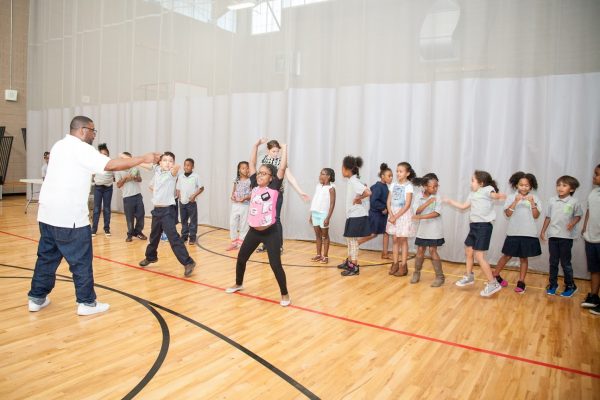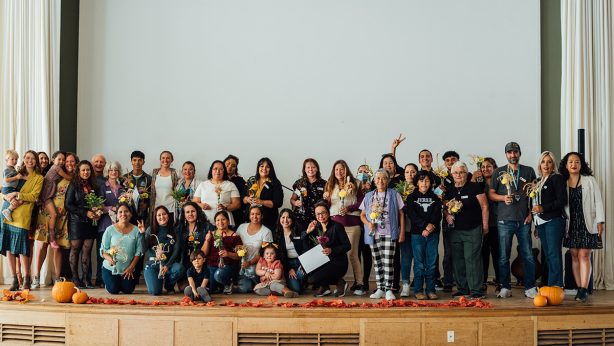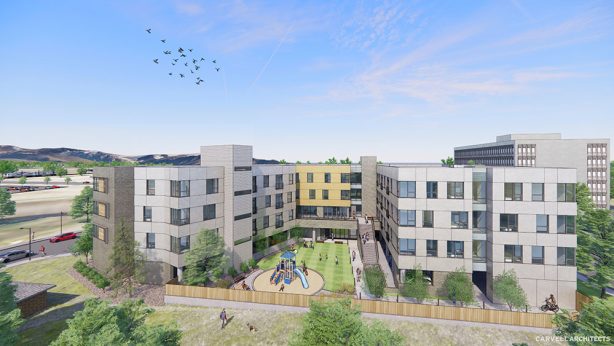July 2018 Partner Spotlight of the Month: Park Hill Collective Impact
Urban Land Conservancy celebrates the achievements of our partnerships that create and preserve nonprofit facilities and affordable housing for communities in metro Denver. ULC’s Monthly Partner Spotlight is awarded to partners who demonstrate the value of collaboration, furthering our mission to improve the lives of Metro Denver residents through our real estate investments and community assets.
Congratulations to our July 2018 Partner Spotlight of the Month: Park Hill Collective Impact!

Park Hill Collective Impact (PHCI) was launched in 2017 in the Park Hill neighborhood of Northeast Denver. The organization was initially a project of Civic Canopy, a community based nonprofit dedicated to creating a culture of collaboration in Colorado. James Roy II was hired as the organization’s first Executive Director in 2017. Prior to joining PHCI, worked at ULC from 2010 to 2015, most recently as the Program Manager of Master Site Development. After leaving ULC, Roy founded and led an urban planning consulting firm specializing in real estate development feasibility research, community engagement and project management. As Roy transitioned into his role at PHCI, he was charged with establishing the brand, incorporating the business and obtaining 501(c)3 status.
“Our mission is to ensure that every single child in Park Hill is provided the supports needed to thrive academically, socially, emotionally and economically from birth through age 25”.
PHCI’s mission is, “to ensure that every single child in Park Hill is provided the supports needed to thrive academically, socially, emotionally and economically from birth through age 25.” This means the organization role is not about creating and managing programs, but rather recognizing and supporting existing programs and encouraging collaboration to help drive progress in the community. This is ultimately the collective impact approach in a nutshell. According to the PHCI, collective impact is a model used to facilitate large scale social change. “It is a structured and disciplined approach to bringing cross-sector organizations together to focus on a common agenda that will result in long lasting change.” Now a year and a half into the nonprofit’s lifespan, and Roy explained that the organization is in the initial stages of establishing trust in the community.
Ultimately, PHCI aims to serve as the backbone for neighboring organizations in the Park Hill community through data research and analysis. Roy explained the process of gathering and analyzing data from local partners, school districts and any other relevant sources. The data collected thus far has highlighted existing gaps, and brought to light many of the struggles Park Hill residents face. According to data collected from Shift Research Lab, the average price for a home went from $75,400 in 2010 to $358,960 in 2015. As housing prices go up and affordable options decrease, there is a direct impact on a child’s education, growth and development. Additional information PHCI collects includes data that highlights the connection between early literacy rates, in-school tutoring, and afterschool programming.

“Our job with the data we collect is to recognize the interconnection between literacy and other challenges facing the community,” Roy explained. “In the end we want to reach the point where we can measure the success of each student – individually, to ensure that they have been provided the environment to thrive.”
As the nonprofit continues to nurture strategic partnerships and build a strong reputation in the Park Hill community, PHCI is focused on building relationships with any youth service related organization. This past June, Park Hill Collective Impact brought together local organizations to coordinate an Early Literacy summer kickoff event. The event included Roots Elementary, the John A. Vickers Boys & Girls Club, the Pauline Robinson Library, STAND, Project Proud Fatherhood, Black Child Development Institute and Urban Land Conservancy. The event targeted children and their parents from Roots Elementary, and was part of a larger project – an accelerated reader program which will start with the 2018-2019 school year at Roots Elementary. The after school program will monitor each student individually and eventually act as a model to scale the program to additional schools in the area.
ULC participated in the Early Literacy event because of our strong ties to the Northeast Park Hill community. ULC acquired our first property in the neighborhood in 2006, which today serves as transitional housing for those experiencing homelessness. Twelve years later, ULC partnered on the creation and preservation of nearly 300 units of affordable rental housing and helped rebuild the Holly Shopping Center in Northeast Park Hill after gang arson destroyed the shopping center in 2008. ULC worked with community partners for eight years to redevelop the square as a vibrant community hub catering to children. The site is home to the Jack A. Vickers Boys & Girls Club, Roots Elementary School and a new outdoor gathering space for the community. We were honored to be included in the Early Literacy event, where we also released a report nearly ten years in the making: “The Story of Holly Square: Gangs Leave Ashes, Residents Rebuild the Heart of a Neighborhood.”
Thank you for all of your incredible work in the Park Hill community PHCI, and we look forward to working in collaboration!
Coming in August:
Thriving Not Just Surviving
For more information: www.parkhillci.org



